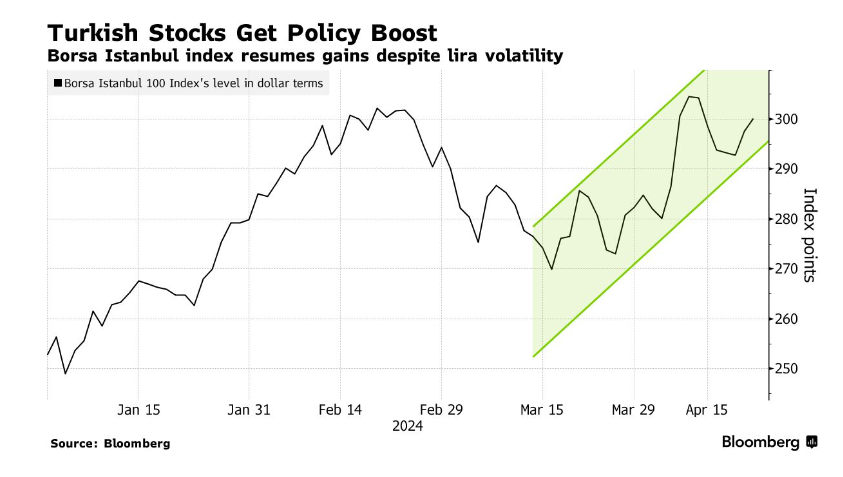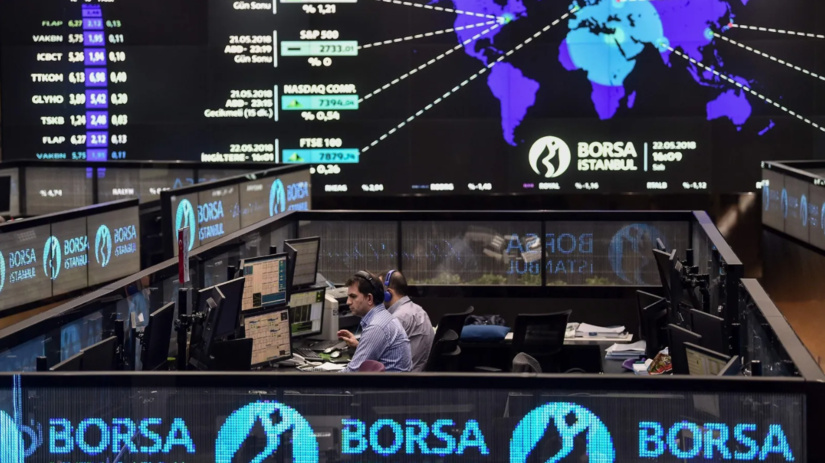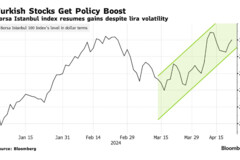“Turkish equities are not as cheap as they were before,” said Adnan El-Araby, a money manager at Barings in London. “So if there’s an economic slowdown and local investors start selling, we could consider raising our exposure.”
Turkish stocks have given investors dollar returns of 33% in less than a year as the President Recep Tayyip Erdogan’s government signaled a policy U-turn, abandoning unorthodox fiscal and monetary polices of the past several years, and adopting market-friendly measures. Since then authorities have raised benchmark interest rates by 41.50 percentage points in a bid to contain inflation and stabilize the lira.

“Since last year’s general elections, the risk premium has started to come down, the new finance team seems to have managed to convince Erdogan,” El-Araby said. “We don’t think Erdogan would want to leave a legacy tarnished by economy.”
Despite currency losses this year that took the lira to a record low and a leadership change at the central bank, the government has committed to do “whatever it takes” to stabilize the economy after inflation zoomed to over 80% as a result of previous unorthodox policies. The impact of the cost-of-living crisis was evident in the result of the municipal elections held last month when Erdogan suffered a historic loss.
However, Turkey’s equity rally has been driven mostly by local investors, with overseas flows remaining sparse as foreigners wait to see further progress in the return to policy orthodoxy.
“Growth has to and will begin to slow down at some point, But will the government be willing to stomach it? That’s when the real test of commitment will be visible to investors,” said El-Araby who is a co-manager at Barings Emerging EMEA Opportunities PLC.
Barings went overweight in Turkish equities around last year’s elections and Turkish stocks currently make up about 7% of the company’s fund.
Source — Bloomberg






















leave a comment